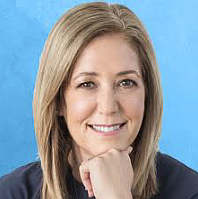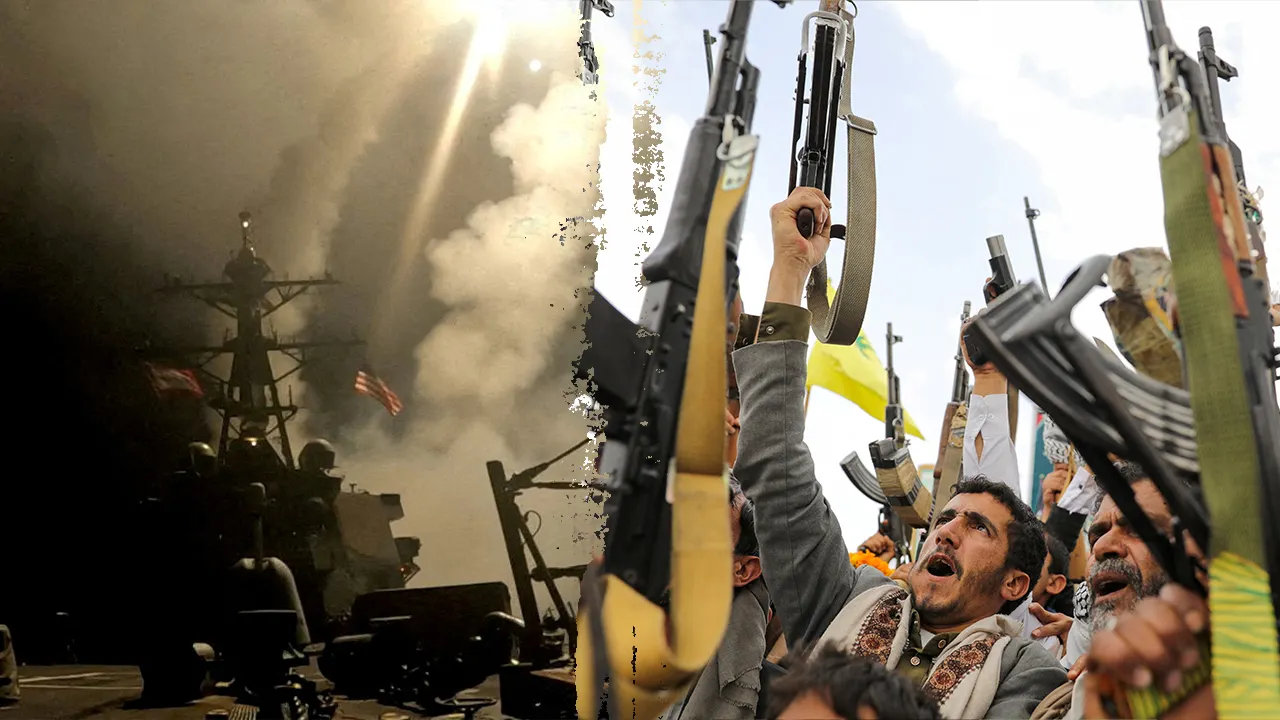Finance
It may take $10 million to achieve ‘financial freedom,’ say ‘Earn Your Leisure’ hosts

Troy Millings, left, and Rashad Bilal, co-creators of Earn Your Leisure.
Source: Tyrell Davis
Rashad Bilal and Troy Millings are among a growing class of financial influencers who want to help people be smarter about money.
The duo — a former financial advisor and a teacher, respectively — launched the podcast “Earn Your Leisure” nearly five years ago with a mission to promote literacy around money and entrepreneurship.
About 1 in 7 people lost more than $10,000 in 2022 due to a lack of financial literacy, according to a study by the National Financial Educators Council.
“I realized there were certain things that weren’t taught inside schools — financial literacy and financial education being one of them,” Millings said of the idea to create Earn Your Leisure.
More from Personal Finance:
As mortgage rates hit 8%, home ‘affordability is incredibly difficult,’ economist says
Student loan borrowers reenter ‘a very messy system’
The 10-year Treasury tops key 5% level: Here’s what that means for you
Today, Earn Your Leisure has expanded to create multiple podcasts, host live events and offer an online educational platform, EYL University. It has 1.4 million Instagram followers and another 1.4 million YouTube subscribers. Its flagship podcast has an average 3 million downloads a month, said Bilal and Millings. It’s also developing a financial literacy curriculum for high schools.
CNBC interviewed the duo — who have been friends since childhood — to talk about personal finance and financial literacy in the U.S.
This interview has been edited and condensed for clarity.
‘Investing is not just for rich and wealthy people’
Greg Iacurci: You told CNBC last year that your “purpose is financial literacy and empowerment.” When it comes to financial literacy, what’s the No. 1 mistake you see people making with their finances?
Rashad Bilal: Not understanding the importance of investing, or [not] knowing how compound interest works.
For a long period of time, investing was something that people looked at more as a luxury, not a necessity, [thinking] if you’re able to invest then you’re in the top 1%, or you have to be wealthy to even consider that.
Investing is not just for rich and wealthy people. It’s for everybody. You can start with smaller balances and dollar-cost average.
Troy Millings: The relationship with money: People don’t understand what to do with it or how to save it. These are simple concepts we’re not taught. When we don’t know what to do, we do what we know, and that’s often spending outside our means. Mistakes are made because nobody is educated.
People may have heard that investing and compound interest are important but might not know why. Can you speak to that?
Bilal: The only way to really achieve financial freedom is if your money is growing without you working for the money. How to achieve that is through investing. One dollar will only be $1 if it’s saved in the bank. But $1 can become $2 if it’s invested.
Most people understand this without even fully realizing that they understand it because they have a retirement plan. The whole point of a retirement plan is investing. You put money into a 401(k), and that money gets invested with the expectation that when you’re 65, 70 years old you’ll have a nest egg you can draw from and live off of in retirement.
The only pathway to not working forever, to having money in abundance, is to find ways to make more money with the money you currently have.
What it takes to achieve financial freedom
Troy Millings, left, and Rashad Bilal, co-creators of Earn Your Leisure.
Source: Greenleaf Multimedia
You mentioned financial freedom. How much money does someone need to be financially free?
Bilal: I think everybody is different. I think it depends on where you live. But I would say, I think you have to be in the eight-figure-net-worth range if you live in suburban or metropolitan areas. I would say around that $10 million figure would provide some level of comfort if other aspects of your life are maintained.
And what is financial freedom?
Millings: I think it’s having enough financial resources to pay for your lifestyle, your living expenses, and also allows you money to invest.
It could differ. It could be in that eight-figure range. Or it could be seven figures. It’s really about having the financial resources to do what you want and invest and create generational wealth. It needs to be something that lasts for generations.
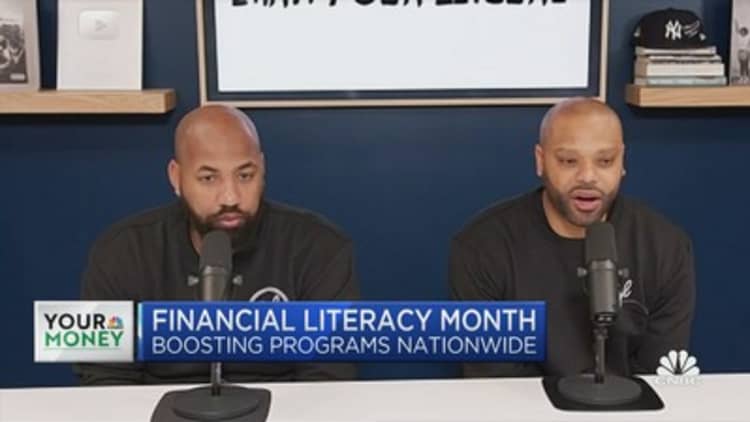
Some people might hear that — seven or eight figures — and think, “How is that possible for me?” Do you think it’s possible for most people?
Bilal: Most people probably aren’t going to make $10 million — I’m just being honest to the question you asked. We have to be honest.
But some people will. This is why we’re big on entrepreneurship, we’re big on investing. You might not be able to accumulate $10 million in your lifetime, but you might be able to accumulate $1 million or $1.5 million. That’s still better than being 70 years old with $20,000 in your bank account.
I think the aspiration towards a certain goal, you might not be able to actually obtain that goal, but if you fall short you’ll still probably be better [off] than you would have been if you had no aspiration and didn’t follow any rules or didn’t try to invest or start a business; you live off what you have. You won’t buy a $1 million home if you only have $1,000 in your bank account. Your life will still be better financially than if you didn’t follow the pathway towards the goal.
Making it ‘cool to be educated’ about money
For the person who’s just starting out investing, how would you suggest they go about it?
Millings: When you’re young, you want to be as aggressive as possible, and when you’re older, you want to get more conservative. Risk mitigation is a huge part of that. We always tell people to start with indexes — an entire index or entire [industry] sector in an exchange-traded fund. That keeps you from having the volatility of watching a stock either appreciate — where you might get some upside — or depreciate, where the risk on the downside is far greater.
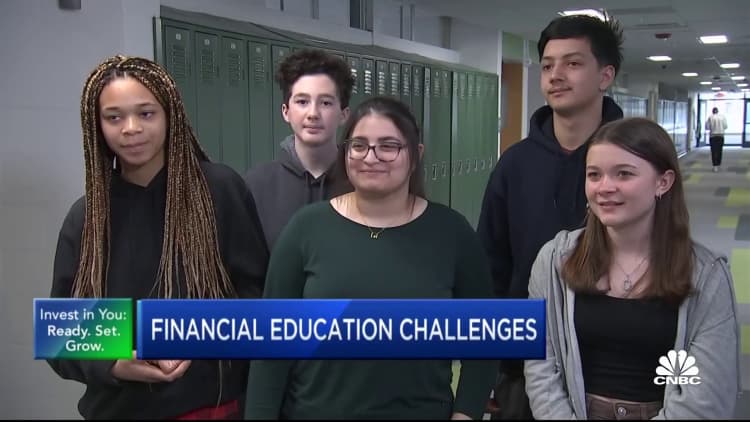
In a recent discussion with entrepreneur and musician Sean “Diddy” Combs, you mentioned that when he met you, he said you “make it cool to be educated.” How do you go about that?
Millings: We’re authentically ourselves, so there’s a natural relatability because people see themselves in us. When people talk about finance they try to make it a language that is upspoken to the masses. Our mission was to democratize it, to make it seem like something that can be very relatable and digestible. We show up the way we are, we wear sweatshirts, we wear hoodies. We represent everybody. It doesn’t feel like it’s only for the elite or it’s only for a select crowd.
It’s the same thing in the classroom: A student has to realize this is someone I can learn from and who I want to teach me. Our audience kind of feels that way when they look at us. We’re also very vocal that we’re learning as well. We don’t know everything, and we bring people on [the show] who can educate us.
‘Having money doesn’t alleviate the problems’
For your podcasts, you’ve interviewed several famous and wealthy people — pro athletes, musicians and entertainers, for example. Are there certain things about finance that seem just as confusing for the rich and famous as for the average person?
Bilal: Yeah, I think a lot of people don’t have a full understanding of finance. It doesn’t matter how much money you make. That’s a common misconception.
Having money doesn’t alleviate the problems, it just makes the problems even worse. Understanding money or having a good understanding of money isn’t something that’s correlated with how much money you have.
Financial literacy is something I think gets metastasized on the highest level. Those are the same issues that everybody else has, it’s just everybody else doesn’t have the opportunity to lose $30 million or invest $20 million into a bad investment and then it goes belly up. If given the opportunity they probably would, it’s just they don’t have it. It’s a bigger microscope on celebrities because they’re public figures.
Is that because wealthy people and celebrities have a capacity to overspend more than the average person?
Bilal: I think it’s not so much just a spending situation. That’s a common misconception also, that they go broke because they spend money lavishly. That’s one part of it. But another major part is they’re actually trying to do the right thing, they’re just misinformed.
You see a lot of people make bad decisions when it comes to investing. They’ll invest in things that might be Ponzi schemes, bad real estate deals, they’ll be led down a bad path when it comes to financial advisors or people they trust. They think they’re doing something productive with their money but they actually are losing money because the investments aren’t fully vetted, they don’t fully understand what they’re investing in.
So I think it’s a little more complicated than just spending habits. It all comes back to not having a basic level of understanding and education when it comes to money.
It seems there’s some relatability there for everyday people.
Bilal: For sure. Look at crypto, for example. If you look at [the cryptocurrency] dogecoin, a lot of people made misinformed decisions. They thought they were doing something productive. They didn’t go into it with the intention of losing money. In their brain it was like, ‘This is an opportunity to turn $5,000 into $20,000.’ And they potentially lost all of their money.
It’s the same thing [with celebrities]. It’s just played out on bigger levels.

Finance
Financial surveillance threatens California border businesses

Many people do business in cash. They pay rent, go shopping, or wire money to relatives without government surveillance. But now, under a new federal directive targeting neighborhoods near the Southern Border, different rules apply.
Esperanza Gomez owns Novedades y Servicios, a small storefront offering entirely legal and legitimate money services to people who use cash. Normally, anytime a customer wants to do anything over $10,000—like cash a check, get a money order, or wire money—businesses that help them must record sensitive personal information, including the customer’s Social Security number, and report it to the federal government.
But starting on April 14, 2025, the government lowered that threshold to just $200. Previously, Gomez never had to make these reports because her customers’ transactions are always under $10,000. But because of the new rule, she suddenly must report nearly every transaction to the feds.
Many customers do not want the government to get a report every time they cash a check to buy groceries, diapers, or clothes at the stores across the way from Gomez’s shop. “My customers are honest people who are trying to live their lives,” she says, “Many do not have bank accounts, and they need these services. They don’t understand why this is required.”
What’s more, the new law only applies to 20 ZIP codes in Texas and 10 in California across Imperial and San Diego Counties. Everywhere else, the federal reporting standard remains $10,000. Actual criminals—if they really need to move money in $200 increments—can just go to a San Diego ZIP code not targeted by the new rule or head north toward Orange and Riverside counties.
Left behind will be small-business owners like Gomez and her customers who lack mobility.
The burden of compliance with the new law threatens to drive Gomez out of business. She will need more hours than she has in the day to complete the required paperwork. Penalties for a missed report top $70,000.
For a one-person store like Novedades y Servicios, this new surveillance regime is both business-crushing and a huge invasion of financial privacy. “I’ve always followed the law and will continue to do so,” Gomez says. “But this would be so costly that it would probably put me out of business.”
The government says the order is temporary—expiring in September—but past surveillance orders issued by the same federal agency have been repeatedly renewed past their expiration dates. Some have eventually been expanded to cover the entire country.
Rather than go away quietly, Gomez filed a federal lawsuit on April 15, 2025. Our public interest law firm, the Institute for Justice, represents her. For now, at least, she can breathe easy. The U.S. District Court for the Southern District of California issued a temporary restraining order on April 22, pausing enforcement for a short period while the court considers more permanent relief.
We also represent Texas business owner Arnoldo Gonzalez, Jr., in a separate case. A court in Texas court paused the new surveillance rules for the companies in that case, but other Texas businesses still must comply.
The underlying issues are the same in both cases. Unlimited surveillance violates the Fourth Amendment, which guarantees people’s right to be secure against unreasonable searches and seizures.
Finance
Non-bank financial institutions’ reliance on banks for contingent credit under stress and its consequences
In recent years, banks’ credit line exposure to ‘shadow banks’, or non-bank financial institutions (NBFIs), has grown significantly faster than exposure to non-financial corporations. Between 2013 and 2023, bank credit lines to NBFIs tripled from $500 billion to $1.5 trillion, and in 2023 over 20% of all bank credit lines were committed to NBFIs (Acharya et al. 2024). How do the growing linkages between banks and NBFIs impact the performance and systemic stability of banks? We answer this question by studying an important leading example of a non-bank financial institution – real estate investment trusts (REITs; Acharya et al. 2025).
REITs are significant investors in commercial real estate (CRE), with over $4 trillion in investments, corresponding to 20% of the CRE market that is currently valued at $21 trillion.
Rising interest rates and an economic slowdown can therefore exert considerable pressure on the CRE sector.
Considering the vast scale of the CRE market, disruptions in the CRE sector can influence the availability of bank credit to households and businesses. Consequently, regulators and policymakers have increasingly focused on the risks associated with CRE loans in recent times. REITs, being large CRE investors, inherit these fundamental economic and financial risks.
Importantly, nearly half of all bank-originated credit lines to public NBFIs are allocated to REITs. As shown in Figure 1, REITs exhibit significantly higher utilisation rates on bank credit lines compared to other NBFIs and non-financial corporates. Moreover, their credit line usage is markedly more sensitive to aggregate market performance, as indicated by the slope coefficients in the figure. Notably, REIT utilisation rates spike during periods of market stress (such as the COVID-19 period), making credit lines to REITs a potentially significant source of systemic risk for banks.
However, despite these factors, the significant exposure of large banks to the CRE sector via their credit lines to REITs is often underappreciated. It is commonly assumed that disruptions in the CRE sector mainly affect smaller banks. Figure 2 illustrates the on-balance-sheet exposure in the form of CRE loans as a proportion of total equity over the past decade for three types of banks: community banks (assets under $10 billion), regional banks (assets between $10 billion and $100 billion), and large banks (assets exceeding $100 billion). The exposure of regional and community banks, when scaled by equity, is approximately four and five times greater, respectively, than that of large banks. As per this exposure measure, there has been a notable increase over the past decade in CRE loan exposure among regional and, especially, community banks, but not among large banks. This might suggest that the CRE stress does not pose systemic risk to the largest banks in the economy.
Figure 1 Average credit line utilisation by borrower group
Notes: This figure plots the average credit line utilisation rate by three groups of borrowers – REITs, NBFIs (excluding REITs), and non-financial companies – versus the S&P 500 return. Each dot indicates the utilisation rate in one of the quarters between 2005Q1 and 2023Q4. The dots for 2008Q4 and 2020Q1 are labelled to highlight the main crisis quarters. The solid blue line indicates the slope of a regression of utilisation rates onto the S&P 500 return for REITs, the dashed red line and the green dotted line indicate the respective slopes of the same regression for NBFIs excluding REITs and non-financial companies. Data are obtained from Capital IQ and CRSP.
However, these figures ignore loans and credit lines provided by banks to REITs. The primary conclusion that emerges from our empirical analysis is that to get a complete picture of bank exposure to CRE risks, it is important to focus not just on the direct CRE exposure of banks but also on the provision of credit, especially by large banks, to REITs. Once the indirect exposure of banks via term loans and credit lines to REITs is accounted for, CRE exposures are concentrated not only in the portfolios of smaller banks but also among the largest US banks. Figure 3 illustrates this fact. In this figure, we categorise bank exposure into direct CRE exposure, indirect exposure via term loans to REITs, and indirect exposure through credit lines to REITs. For large banks, indirect exposure constitutes about a third of their total exposure, whereas for regional banks, the indirect exposure through REITs is considerably smaller, and for community banks, it is practically negligible.
Figure 2 Total on-balance-sheet exposure to the commercial real estate market
Notes: This figure shows the total reported on-balance sheet exposure to the commercial real estate market scaled by the total book value of equity of the bank. Data are from the FR Y-C at the quarterly frequency from 2013Q1 to 2023Q4. We split banks into three types: community banks (assets
Figure 3 Total exposure of banks to commercial real estate
Notes: This figure shows the total exposure of banks to commercial real estate (CRE) by stacking their direct exposure through on-balance sheet CRE loans and indirect exposure through banks’ term loans and credit lines to Real Estate Investment Trusts (REITs). Banks are classified as follows: community banks (assets
What, then, are the underlying mechanisms through which credit-line exposure of banks to REITs might pose a system-wide risk? In summary, there is a higher utilisation rate of credit lines by REITs relative to other NBFIs and non-financial corporates, especially when the performance of the underlying real estate assets declines and particularly during periods of aggregate economic stress. This behaviour is associated with a notable decrease in stock returns for banks more heavily exposed to undrawn credit lines extended to REITs, consistent with capital encumbrance imposed by credit line drawdowns impeding banks’ future intermediation activities.
We first tease out why REITs have higher utilisation rates on credit lines, especially during stress. By regulation, REITs are required to pay out at least 90% of their income in the form of dividends, restricting the amount of cash REITs can accumulate.
This leads to a disproportionately large dependence of REITs on bank credit lines for liquidity during stress periods. For example, Blackstone REIT (BREIT) and SREIT (managed by Starwood Capital) relied on their lines of credit during 2022 and 2024 respectively, nearly exhausting their credit line capacity to satisfy investor withdrawal requests.
We show that the findings in these case studies generalise to a broader setting in which we find significant positive correlations between redemptions and credit line drawdowns for all REITs in our sample. We also find that REITs increase investments and dividend payouts and reduce cash in the four quarters after a drawdown. This seems to indicate that they use both their cash and the liquidity from credit lines to acquire properties and pay out dividends. During crises (Global Crisis and COVID-19) however, we find that REITs start building cash buffers and they discontinue investing, i.e. acquiring properties. In fact, 72 cents of each dollar drawn is used to increase cash holdings. In other words, REITs use bank credit lines like ‘working capital’ for business activities in normal times, but to hoard cash during stress times.
We next investigate the impact of higher credit line utilisation by REITs on banks. Unlike term loan exposures that banks report on their balance sheet and fund with capital, and whose potential risks they manage through loan loss provisions, credit lines are off-balance-sheet and funded with equity capital to a much lesser extent until drawn down. Moreover, the risk of simultaneous drawdowns by borrowers during widespread market stress may suddenly constrain bank capital and/or liquidity, thereby reducing the banks’ ability to intermediate effectively. Consistent with these channels, we find that banks with higher undrawn credit line commitments to REITs experience lower stock returns during crises (controlling for banks’ total credit line commitments).
Finally, we document that credit lines to REITs substantially increase banks’ capital requirements during aggregate stress periods. We estimate an expected (market-equity-based) capital shortfall under aggregate market stress (e.g. -40% correction to MSCI Global Index) vis-à-vis a benchmark capital requirement (e.g. 8% of market equity relative to market equity plus non-equity liabilities), by incorporating REIT and non-REIT credit lines in stress test scenarios. We compare three models: one treating all borrowers uniformly, one distinguishing REITs by their unique drawdown behaviour, and one considering direct on-balance-sheet CRE exposure. As of Q4 2023, we estimate that the incremental capital requirement for publicly traded US banks rises by approximately 20% — from $180 billion to $217 billion — primarily due to REIT drawdowns, while CRE exposures add only $2 billion. Notably, over 90% of this additional capital burden falls on large banks. These results highlight the systemic risks posed to banks, and in turn to the real economy, by REIT credit lines, underscoring the need for careful regulatory scrutiny.
While we have focused on publicly traded REITs, this raises broader questions about the growing linkages between banks and NBFIs. Acharya et al. (2024) document that NBFI drawdowns have risen from 25% in 2013 to over 50% post‐COVID, with private NBFIs accounting for nearly 60% of drawdowns by private firms (compared to 30% for public ones). Additionally, credit lines to NBFIs such as business development companies (BDCs) and collateralised loan obligations (CLOs) have increased from 28% to 42% of total bank credit to NBFIs between 2013 and 2023. Given that private NBFIs generally exhibit higher credit line utilisation rates than REITs, stress in their funding conditions could similarly affect banks via the credit line channel. In essence, as NBFIs continue to expand their role in credit intermediation, their continuing reliance on banks for contingent liquidity highlights a critical channel through which risks may be transmitted back to the banking system.
References
Acharya, V V, N Cetorelli and B Tuckman (2024), “Where Do Banks End and NBFIs Begin?”, NBER Working Paper.
Acharya, V V, M Gopal, M Jager and S Steffen (2025), “Shadow Always Touches the Feet: Implications of Bank Credit Lines to Non-Bank Financial Intermediaries”, NBER Working Paper No. w33590.
Gupta, A, V Mittal and S Van Nieuwerburgh (2022), “Work from home and the office real estate apocalypse”, Working Paper, NYU Stern School of Business.
Hardin III, W and M Hill (2011), “Credit line availability and utilization in REITs”, Journal of Real Estate Research 33: 507–530.
Jiang, E X, G Matvos, T Piskorski and A Seru (2023), “Monetary Tightening, Commercial Real Estate Distress, and US Bank Fragility”, NBER Working Paper.
Mei, J and A Saunders (1995), “Bank risk and real estate: an asset pricing perspective”, The Journal of Real Estate Finance and Economics 10: 199–224.
Finance
Hong Kong economy to post solid growth in first quarter: finance chief Paul Chan

Hong Kong’s finance chief has predicted the economy to post solid growth in the first quarter, while pledging to press on with plans to control government spending to maintain the city’s competitiveness.
Financial Secretary Paul Chan Mo-po gave his forecast on Sunday in the lead-up to this week’s announcement of gross domestic product (GDP) figures for the quarter.
He said the economy had benefited from the increase in tourist arrivals and exports between January and March, but warned of uncertainties in the global outlook amid an ongoing trade war.
“Driven by these positive factors, the advance estimates on GDP for the first quarter of 2025 to be released this week are expected to be robust,” he said in his weekly blog.
“But looking ahead, the bullying acts and the unilateral protectionism of the United States will continue to haunt the global economic outlook.”
Chan said the number of tourist arrivals in the first quarter had increased by 9 per cent year on year to 12.2 million, thanks to a series of mega-events and large-scale international meetings that boosted the performance of the retail and catering sectors.
-
News1 week ago
Harvard would be smart to follow Hillsdale’s playbook. Trump should avoid Biden’s. | Opinion
-

 Politics7 days ago
Politics7 days agoVideo: Hegseth Attacks the Media Amid New Signal Controversy
-

 Culture5 days ago
Culture5 days agoNew Poetry Books That Lean Into Calm and Joy Amid Life’s Chaos
-
Business1 week ago
Porto's Bakery moving forward in Downtown Disney, replacing Earl of Sandwich
-

 Politics1 week ago
Politics1 week agoSupreme Court blocks new deportations of Venezuelans in Texas under 18th century Alien Enemies Act
-

 News1 week ago
News1 week agoMaps: Where Do Federal Employees Work in America?
-
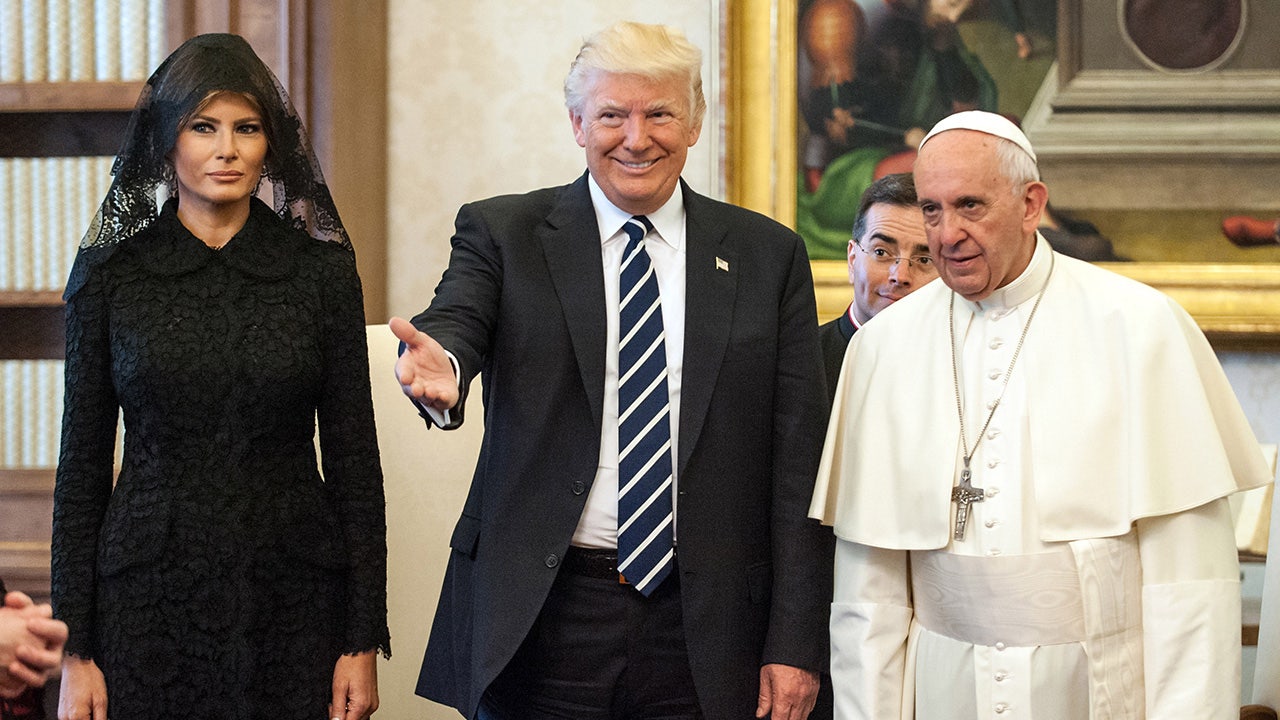
 Politics1 week ago
Politics1 week agoPope Francis and US presidents: A look back at his legacy with the nation's leaders
-

 Technology1 week ago
Technology1 week agoPete Hegseth reportedly spilled Yemen attack details in another Signal chat

